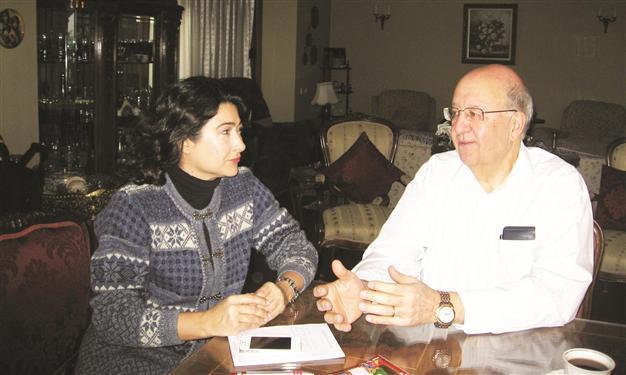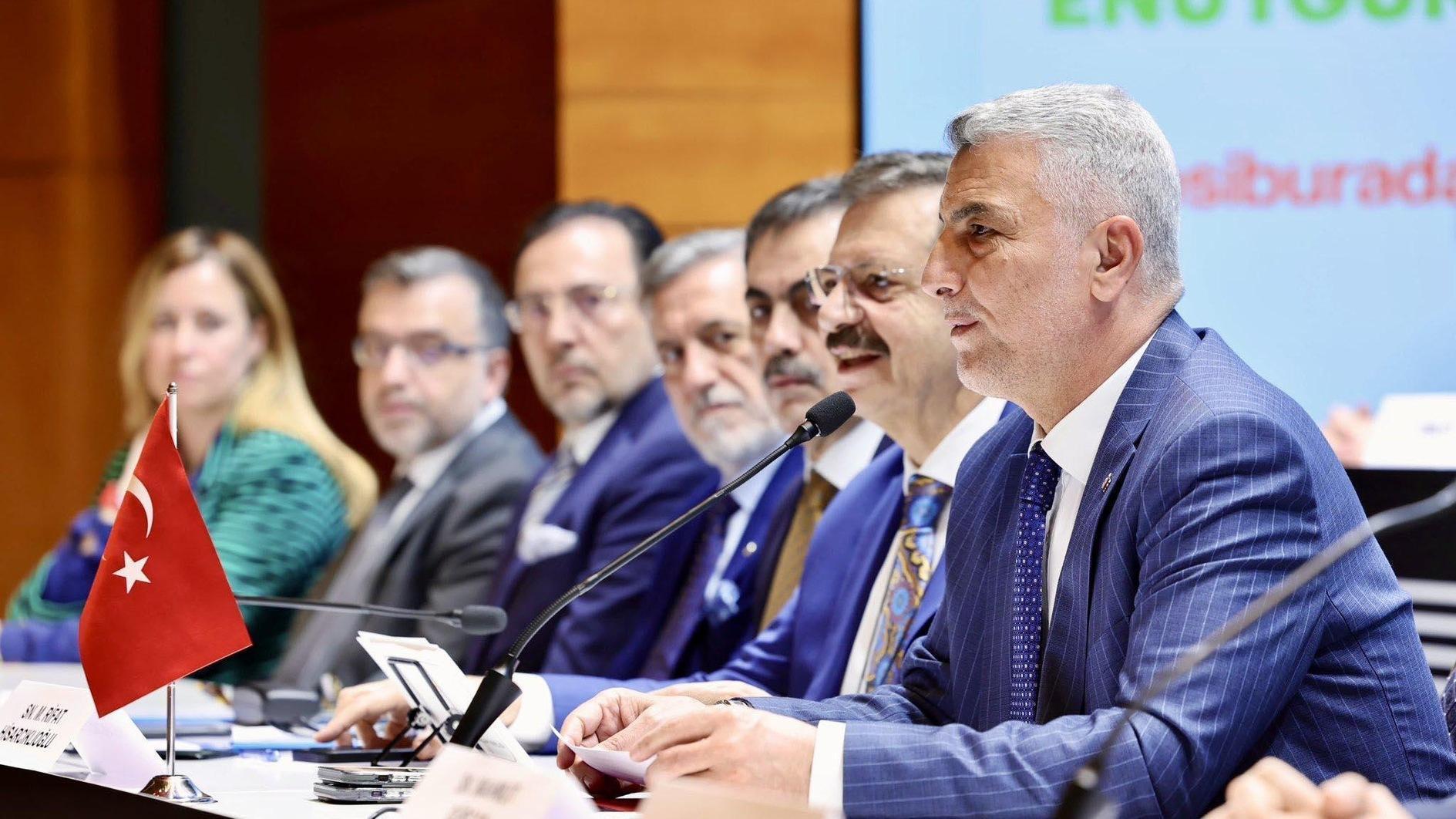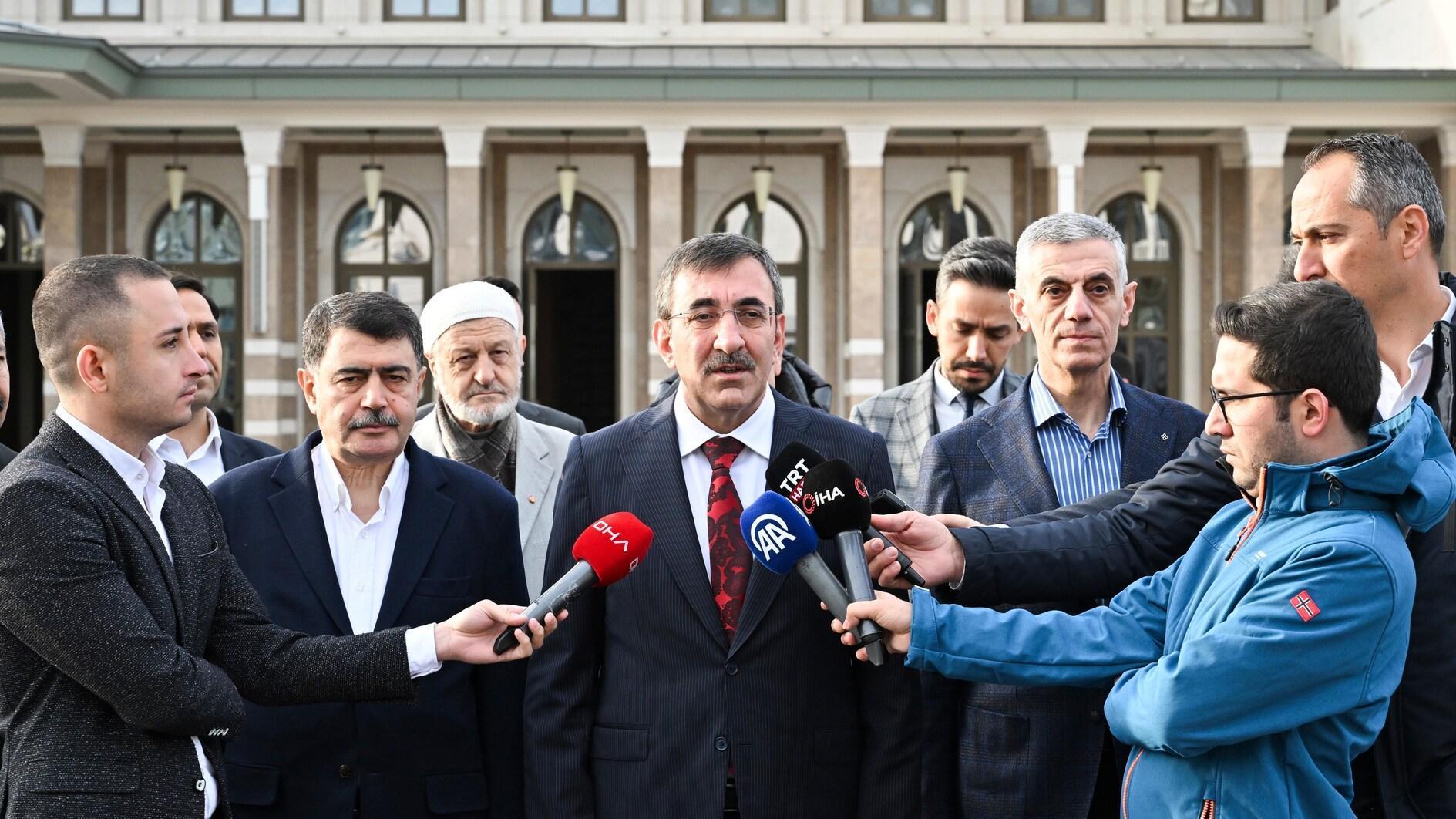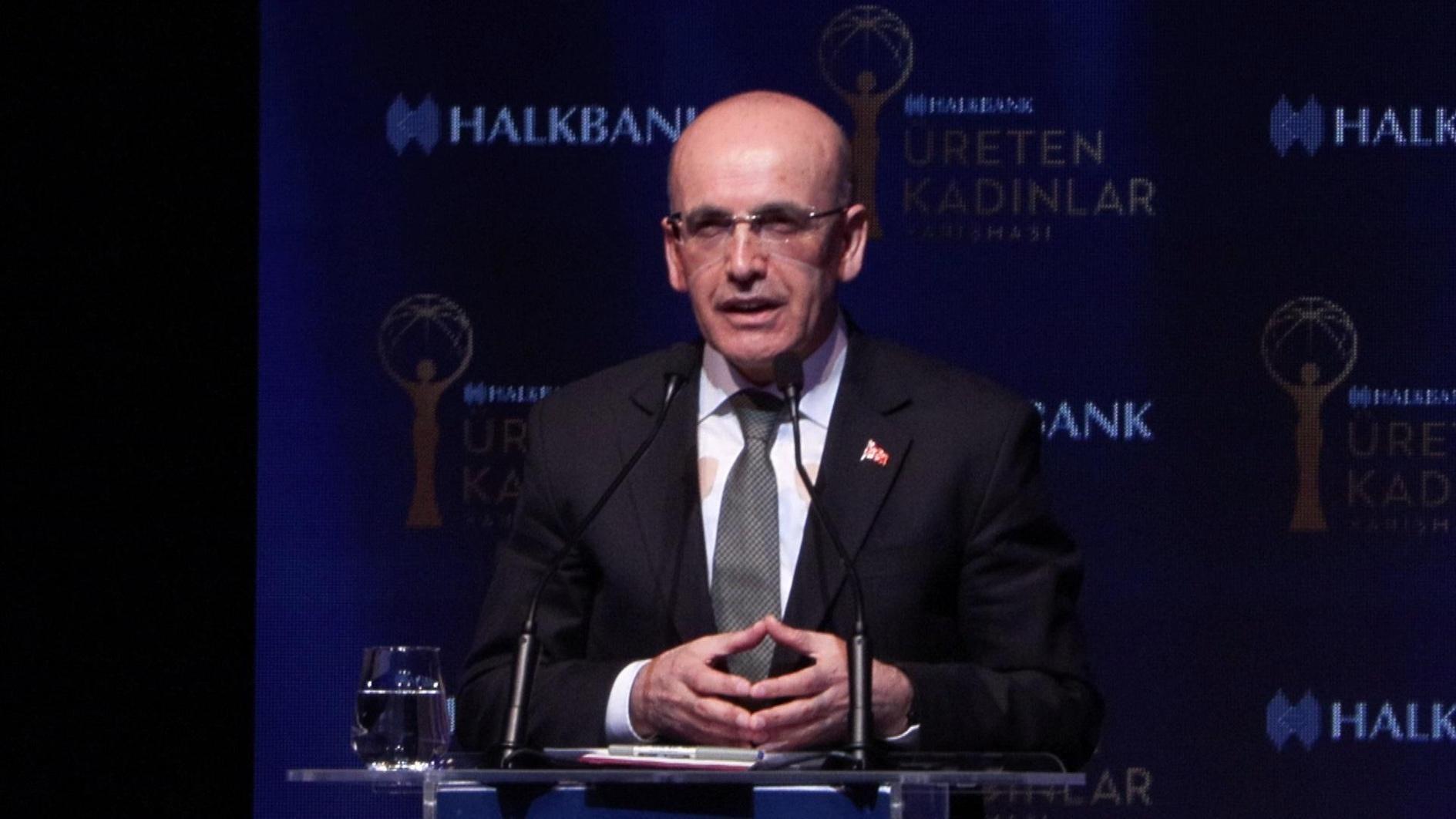Conservatives indifferent to corruption if economy is OK
ISTANBUL – Hürriyet Daily News

Turkey has found itself operating in a competitive authoritarian system.There are political parties, they compete, but the system is authoritarian like Russia, Ukraine, et cetera. according to Kalaycıoğlu. DAILY NEWS photo
Corruption is not necessarily a high moral issue for a majority of conservatives in Turkey, especially if their wallets are getting fatter and fatter, according to a prominent scholar.Despite this, the argument that “as Muslims, we are, by definition, virtuous – we cannot be corrupt” has now come to be questioned more systematically, said Professor Ersin Kalaycıoğlu from Sabancı University.
What is happening in Turkey?
Turkey has moved into the least decentralized, most centralized public administration in its republican history. Even in the 1930s, the laws as they were implemented provided more power to the municipal government than is currently practiced in Turkey.
In practice, political power has been accumulated in the office of the prime minister. He seems to have been instrumental in reinstituting an almost absolutist practice which we thought we left behind during Abdülhamid II’s rule in 1908. A new form of government of absolutism seems to have been erected through the practice of the Justice and Development Party (AKP), more specifically after the 2011 elections.
That has created a variety of problems for the management of the Turkish political system, and we have had many instances of coping with problems of the country through a governmental process which leads to [the inability to manage] these problems.
Can you elaborate?
Most noticeable among them were the incidents in Gezi Park in the summer which should have totally been [just] a matter for Istanbul Municipality. However, Istanbul Municipality’s role was [sidelined] by the intervention of the prime minister. He more or less took full responsibility for directing the police; he declared that he ordered the burning of tents [of protesters] who were camping in the park to protest construction efforts, and he made all the critical declarations about the allocation of the park. This is the central government hijacking local issues and, therefore, undermining local administrations in their work and that, of course, undercuts the process of erecting local democracy and local participation. This makes all politics in the Turkish system central politics; there is not much room for local politics.
In practice, local politics is [transformed] into some kind of central government construction projects decided upon by the central government without the input of local inhabitants, but with some kind of negotiation with some local interests which bypass local voters’ deliberation and approval. As a result, people watch as their cities are changed into [something] completely different by outside forces dominated from the center which promote the interest of certain groups – certain interests related to the center.
This has created a system of enormous centralism and then after the 2011 elections, the Prime Minister’s Office was further empowered by a series of [developments] which have very little role in democracies: executive decrees with the force of law which had been introduced to the Turkish system in the 1970s to enable the government to operate when there was some kind of legislative paralysis.
However, several governments have used this practice even when there are clear majorities in the Grand National Assembly. Therefore, there is no reason why laws cannot be enacted in the legislature.
But the executives prefer executive decrees without any kind of deliberation and control of the legislature which is a clear violation of the democratic from of government. As a result of this, various autonomous agencies which had been [utilized] as mechanisms of control as parts of checks and balances on the executive have become simple agencies of the Prime Minister’s Office, and almost every other autonomous institution is considered as an unnecessary inhibition on the popularly empowered executive and that creates circumstances for further empowerment of the Prime Minister’s Office and the establishment of a prime ministerial system in which the prime minister functions with the help of his non-elected advisers who wield enormous powers but have no accountability. And this system is anything but transparent, and the basic principles of good governance are also not practiced.
They have deviated from democratic practice, as a result of which Turkey has found itself operating in a competitive authoritarian system.
There are political parties, they compete, but the system is authoritarian like Russia, Ukraine, et cetera.
One outcome of such an accumulation of power is that power corrupts; power has become absolute in Turkey and absolute power has tended to corrupt absolutely, and we seem to be experiencing the consequence of that development because of an increasing of accumulation of power in one person, in one office, beyond any kind of effective control. [There is a] lack of transparency. This has created a feeling of invincibility by some and it seems as if and we have not seen the proof of that yet, as the prosecutors are accusing the political elite close to the prime minister with various forms of financial corruption and abuse of power.
You said basic principles of good governance have been violated, but Justice and Development Party (AKP) supporters would say this is not what people think since they continue voting for the AKP.
We do not know people want good governance. We have no evidence that those voting or the AKP have any sensitivity to corruption. We will discover it from now on. What we had earlier accumulated seems to insinuate that people show an enormous amount of [indifference] to corruption when the pie is enlarging … as they tend to look in the other direction. Corruption is not necessarily a high moral issue for a majority of conservatives, especially if their wallets are getting fatter and fatter. Only when they seem to be losing financial capability does corruption start to hurt; then it becomes an issue that they pay attention to. Corruption for a majority of Turkish voters is not a moral issue; it is more of a financial issue.
How come?
Most of these people have come from a very long past of relations with the center which they considered corrupt anyway. Politics in the eyes of these people [in the periphery] is something corrupt. These people moved to the cities and learned to live in the city with an agricultural culture; that culture of a periphery assumed the center had its peculiar, separate culture and that the people involved and the practices were necessarily corrupt.
But the AKP insists on calling itself “AK” (pure or white) to underline it is doing clean politics.
In their argument, those who were secular had nothing to do with religion and having nothing to do with religion make them amoral, if not immoral, by definition. Therefore, it is in their nature to be corrupt, whereas the AKP is religious and, by definition, cannot be corrupt. Now AKP voters have something to think about; these people are religious and supposedly moral, but the correlation between religion and morality do not seem to be as close as these people argued. Therefore, either these people have now failed to be religious and moral, since their morality has softened because their religiosity has been tarnished – as a result of which they have become susceptible to corruption – or there is not that much of a relationship between morality and religion; the two are relatively separate realms and you can be religious or appear religious as you simply put up a façade of practicing religion or even talk in religious rhetoric, but at the same time, you might not be very moral in your acts. They are now discovering this kind of relationship. This argument that we as Muslims are, by definition, virtuous and cannot be corrupt has now come to be questioned more systematically.
There is a big problem for conservative [segments] who voted for the AKP. The basic argument is gone; they are no less corrupt than the others, but my hunch is that they are more corrupt because they are more centralized, so they are less controlled, less transparent – for corruption has to do with all these characteristics.
What do you think the upcoming local elections will indicate?
If these agenda items do not change, it will become more of a plebiscite than a regular local election. First of all, there is not much local in local politics. [We are] so close to a national election, which is a clear indication that that vote will be taken as a sign on how things are moving.
In the relatively developed city centers and big metropolitan areas where people have been born in the cities and internalized a city-based entrepreneurial culture, these issues about corruption will have a big impact, and the votes will be influenced to a certain extent, so there will be some potential for a drop in AKP support. There is also a big tussle between the government and the judiciary. Depending on how this evolves, that gives the impression there is increasing political instability and a lack of management of political affairs; that does not bode well for a government that argues for stability either. If Turkey is becoming normal and if Turkey is a democracy – and both of them are big ifs – then you have alternating governments. The opposition comes to power, and the government goes away.
With all these corruption-related issues, it is of course becoming a plausible matter to ask whether this government can afford to lose the elections, which does not bode well for democracy. In the rest of the country, the AKP will be able to sell that it is only a conspiracy by the United States and Israel, without any evidence.
It seems we cannot even argue that the judiciary is doing its work against the executive.
It is this government that created the special prosecutors and special courts which did not operate within the law all the time, and it looked as if it had a great potential to approach any matter from the political perspective. The government tolerated it, even enjoyed it. The same group of people who had been considered to be doing an immaculate job by the government seem to be involved in locking their horns with the government. It is difficult to understand why the government is now reacting to all of this. This is the creature they created and used to eliminate what they considered the most important adversary, the secular left, plus the military and civilians, [getting rid of them with] flimsy charges in some half-baked cases.
We had a referendum in 2010 as a result of which there was a reform of the judicial system; new institutions were erected. These new institutions were filled with new personnel, handpicked in most cases by the government, such as in the case of the High Board of Prosecutors and Judges (HSYK).
They are now being attacked by the very people who applauded the selection of these people into these positions, arguing that this organ is acting just like the previous one.
What we need is for our judges to internalize the hierarchy of laws, which starts not from the Constitution but from international treaties. But judges are under the control of the HSYK, which is administratively controlling them, and they can be easily removed from their position and their lives can be made miserable. You have to make them insular to all of these.
They are trying to delegitimize the actions of the prosecutors and police. It is the same prosecutors and police that have been involved in cases from 2007 on which the government supported up until now. If what they had done was so immaculate, they should permit them to do it again. If their tricks are considered illegal and illegitimate, then all their acts of the past are illegal and illegitimate, meaning rights have been violated; so that has to be corrected. Then there is a bigger mess than we are ready to recognize.
Who is Ersin Kalaycıoğlu ?
Professor Ersin Kalaycıoğlu is currently a member of the academic staff of Sabancı University’s Faculty of Arts and Social Sciences.
He has conducted various survey research projects, both alone and in collaboration with other colleagues. He participated in the design and fieldwork of “Political Conditions of Rural Economic Development Project,” in 1978 and 1980. Kalaycıoğlu conducted a panel study of Turkish voters in October 2002 and February 2003 on political participation and voting behavior, as well as a field survey of sociopolitical attitudes toward women in Turkey in July 2003.He took part in a national field survey on religiosity in 2008, on social inequality in 2009, the environment in 2010 and health in 2011 as part of an international project for the International Social Survey Program (ISSP).
















